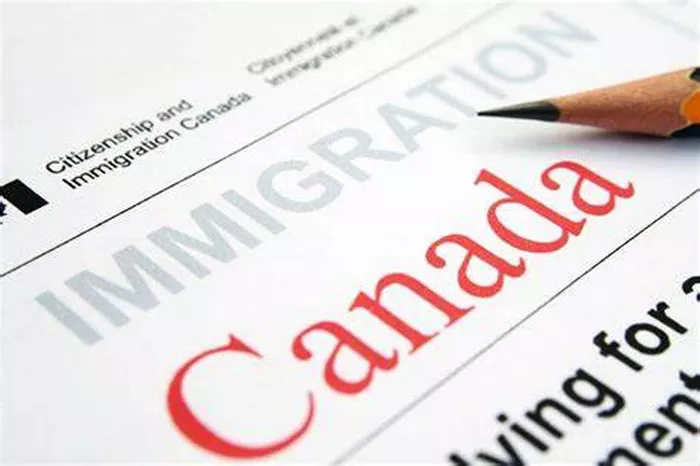Canadian permanent residency is a coveted status that offers individuals and families the opportunity to establish roots and build a future in one of the world’s most welcoming and diverse countries. With its high standard of living, robust economy, and strong social support systems, Canada is an attractive destination for immigrants seeking a better quality of life and professional opportunities.
Obtaining permanent residency status grants individuals the right to live, work, and study anywhere in Canada indefinitely. It also provides access to essential social services, including healthcare and education, and the option to eventually apply for Canadian citizenship. Moreover, permanent residents enjoy the same rights and protections under Canadian law as Canadian citizens, with the exception of the right to vote and hold certain government positions.
Main Immigration Pathways: Navigating the Road to Permanent Residency
1. Economic Immigration:
Canada’s economic immigration programs are designed to attract skilled workers, entrepreneurs, and investors who can contribute to the country’s economy and fill labor market gaps. The Express Entry system is the primary pathway for economic immigration and includes three main streams: the Federal Skilled Worker Program (FSWP), the Canadian Experience Class (CEC), and the Federal Skilled Trades Program (FSTP).
To be eligible for these programs, candidates must meet certain criteria related to education, work experience, language proficiency (English or French), and adaptability factors such as previous work or study experience in Canada. Additionally, candidates must undergo a medical examination and obtain a police clearance certificate to ensure admissibility to Canada.
Provincial Nominee Programs (PNPs) offer another avenue for economic immigration, allowing Canadian provinces and territories to nominate candidates who meet their specific labor market needs and economic priorities. Each province and territory operates its own PNP with unique eligibility criteria and application processes.
2. Family Sponsorship:
Family sponsorship is a cornerstone of Canada’s immigration policy, allowing Canadian citizens and permanent residents to reunite with their loved ones and build family connections. Eligible sponsors can sponsor their spouse, common-law partner, dependent children, parents, and grandparents for permanent residency.
To qualify as a sponsor, individuals must demonstrate the financial ability to support their sponsored family members and ensure they do not require social assistance from the government. Sponsors must also meet certain eligibility criteria, including being at least 18 years old, residing in Canada, and not being in default of previous sponsorship obligations.
3. Business Immigration:
Canada offers several pathways for entrepreneurs and investors seeking permanent residency through business ventures. The Start-Up Visa Program targets innovative entrepreneurs with the potential to create jobs and drive economic growth in Canada. Eligible candidates must secure investment or support from designated Canadian venture capital funds, angel investor groups, or business incubators.
The Immigrant Investor Program, although currently suspended, previously allowed high-net-worth individuals to obtain permanent residency by investing a significant sum in a Canadian business or government-approved investment fund. Other business immigration options include the Self-Employed Persons Program for individuals with experience in cultural activities, athletics, or farm management.
4. Refugees and Protected Persons:
Canada is committed to providing protection and support to individuals fleeing persecution, war, or violence in their home countries. The Refugee and Humanitarian Resettlement Program offers asylum to refugees and protected persons who meet the criteria for refugee status under international law.
Asylum seekers can apply for refugee protection either from inside Canada or at a Canadian port of entry. Those found eligible for refugee status are granted permanent residency and can access essential services to help them integrate into Canadian society.
General Eligibility Requirements
While specific eligibility criteria vary depending on the immigration pathway, there are some general requirements that apply to most immigration programs in Canada:
1. Age: Applicants must typically be at least 18 years old to apply for permanent residency.
2. Language Proficiency: Proficiency in English or French is often a requirement, demonstrated through standardized language tests such as the IELTS or CELPIP for English and the TEF for French.
3. Education: Candidates are usually required to have completed a minimum level of education, typically equivalent to a Canadian secondary school diploma or higher.
4. Work Experience: Many immigration programs require candidates to have relevant work experience in occupations that are in demand in Canada. This experience is often assessed based on the National Occupational Classification (NOC) system.
5. Medical Admissibility: Applicants must undergo a medical examination to ensure they do not pose a health risk to Canadians or place excessive demand on Canada’s healthcare system.
Additional Factors: Influencing Eligibility and Selection
In addition to meeting the basic eligibility requirements, several other factors may influence an individual’s eligibility for Canadian permanent residency or their likelihood of being selected:
1. Adaptability: Candidates with previous work, study, or family ties to Canada may receive additional points or preferences in the immigration selection process.
2. Family Ties to Canada: Having close family members who are Canadian citizens or permanent residents can enhance an applicant’s eligibility for certain immigration programs.
3. French Language Proficiency: Proficiency in French can be advantageous for candidates applying through certain immigration streams, particularly those targeting the province of Quebec, where French is the primary language of communication.
Conclusion
Canadian permanent residency offers a pathway to stability, opportunity, and a better quality of life for individuals and families seeking to make Canada their home. Whether through economic immigration, family sponsorship, business ventures, or refugee protection, Canada’s immigration system provides various avenues for eligible candidates to pursue their dreams and contribute to the country’s prosperity.
By understanding the different immigration pathways, eligibility requirements, and influencing factors, aspiring immigrants can navigate the process with confidence and pursue their goal of obtaining permanent residency in Canada. With its inclusive society, strong economy, and commitment to diversity and multiculturalism, Canada continues to welcome newcomers from around the world, enriching its communities and shaping its future for generations to come.


